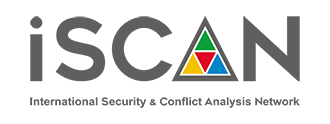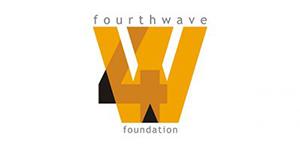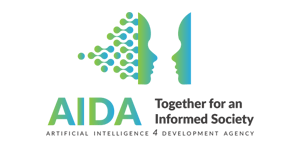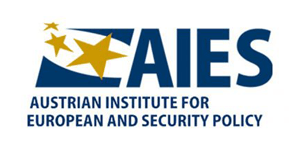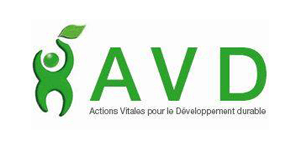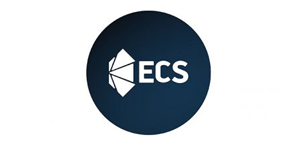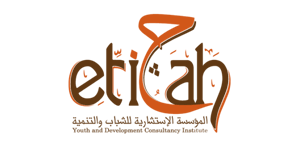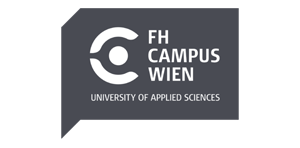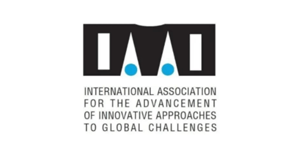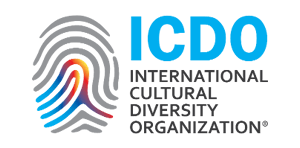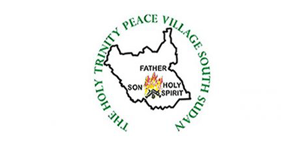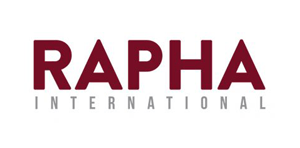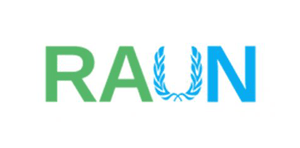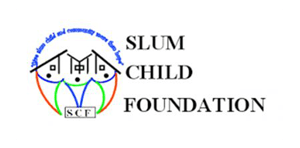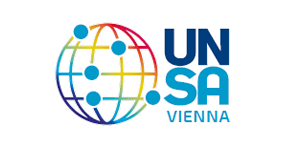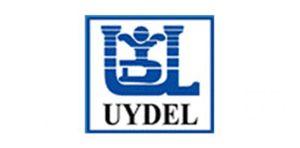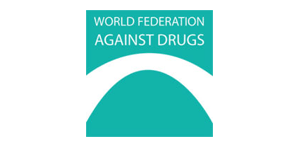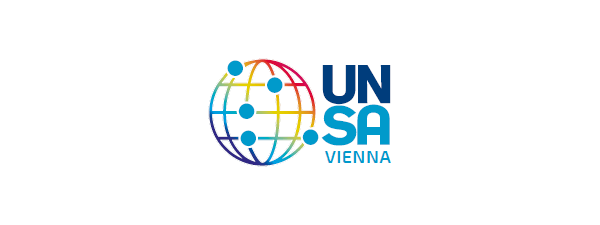SOLVE Conference 2021
Empowering Youth for the Promotion of Peace and Preventing Conflicts
#SOLVE2021
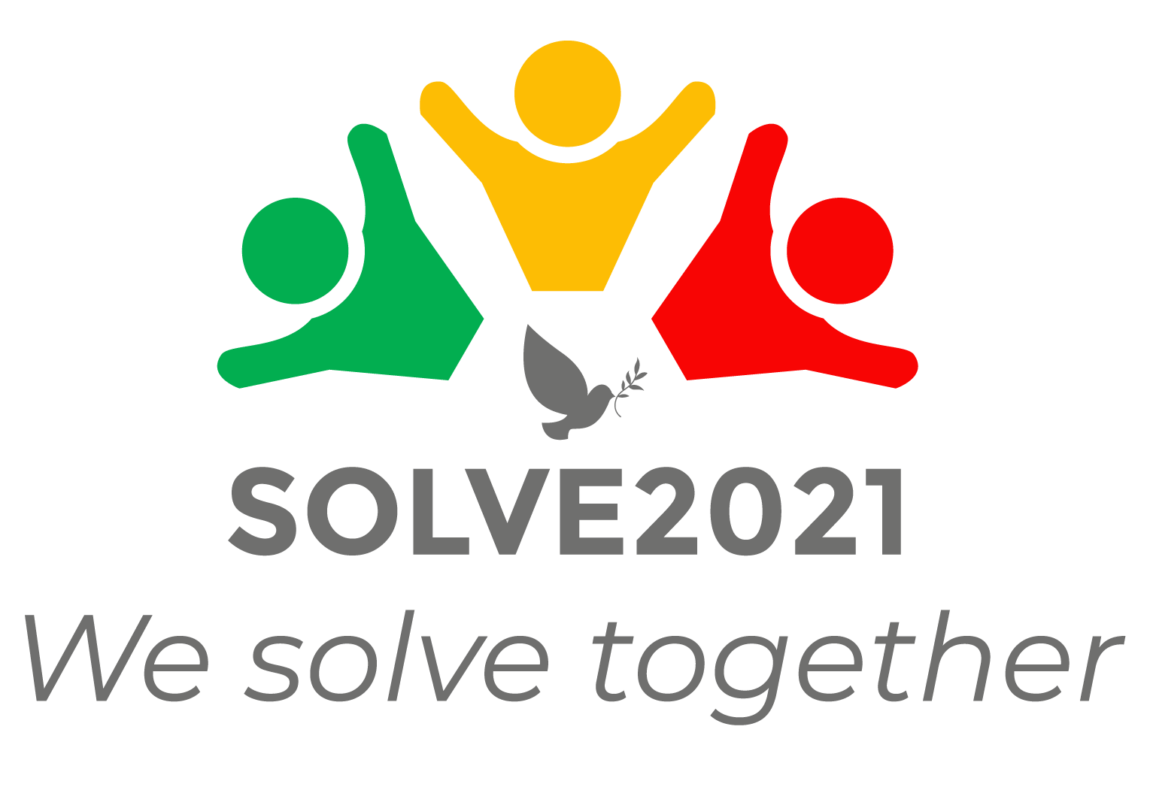
According to the United Nations, conflict and violence have transformed significantly in nature since 1945. Current conflicts are less deadly and mostly between groups in a given country rather than between states. Other forms of conflicts such as homicides are becoming more frequent in some parts of the world, while gender-based violence is increasing globally. The effects of conflicts have long-term impact on development and societal wellbeing and affects the most vulnerable especially women and children.
According to UNFPA, every estimate of direct conflict deaths suggests that more than 90% of all casualties occur among young adult males (UNFPA, State of World Population 2015, p.21). Education, which is at the heart of conflict prevention and development, is one of the areas most affected by conflicts. Before the conflict in Syria, nearly every child was enrolled in primary school but by 2013 about 1.8 million children and adolescents were out of school. It took just two years of civil war to erase all education progress made since the start of the century. As a result of COVID-19, almost 9 in 10 children are out of school according to UNESCO. In 2015, some 50% of the 1.4 billion people living in countries impacted by crises and fragility were under the age of 20. (OECD report on States of Fragility, 2015).
Furthermore, organized criminal groups have become more dynamic and agile and are seeking to benefit from conflicts and humanitarian crises such as COVID-19, according to UNODC. Through these groups, trafficking in persons and smuggling of migrants are on the rise and pose a major risk to the development of local communities and international peace. The COVID-19 pandemic has slowed down significant progress made by states and civil society in addressing insecurities around the world and has exacerbated the vulnerability of the affected populations. Unresolved, all of this threatens peace and security and the achievement of Sustainable Development Goals (SDGs). Amid all these challenges, many states and organizations remain at the forefront of responding to insecurities around the world. Non-governmental organizations (NGOs), private sector companies, and states are making a difference in their communities and around the world.
As part of the response to conflicts and other global challenges, the United Nations dedicated 2020-2030 a decade of action to achieve Sustainable Development Goals (SDGs). SGD 16 is the main goal for achieving international peace and security and is at the core of the work of iSCAN – International Security and Conflict Analysis Network.
In recognition and celebration of the positive impact various stakeholders are making in response to conflicts in the world, the SOLVE Conference 2021 will serve as a forum to celebrate and showcase the extraordinary impact on global peace and security challenges and craft recommendations for further actions. The SOLVE Conference 2021 (SOLVE2021) will feature stakeholders from all sectors who are working to make an impact in their communities and around the world on achieving peace and security. iSCAN’s SOLVERs (high-impact young change-makers) and SOLVE enablers (individuals and organizations supporting SOLVERs) will be at the center of SOLVE2021. SOLVE2021 is organized in the context of supporting the United Nations’ Decade of Action, and in that regard, it will focus on the outcomes of the UN75 global survey.
SOLVE2021 will take place online over two days and will be held in English with French and Spanish interpretations.
Interactive Workshops
Objectives:
- to discuss how to build on the good practices and address existing challenges. Through interactive discussion, participants will exchange on which actions that can be taken to engage young people more in finding solutions.
- The outcomes of the workshop discussions will form the content of the SOLVE2021 Declaration.
Workshop 1 - Fostering a culture of peaceful coexistence
The workshop will focus on interreligious dialogue in peacebuilding. Through a case study, the facilitators will demonstrate the importance of peaceful co-existence within the Islamic civilization since the 20th century. The current situation in Afghanistan in light of emerging religious tensions will be discussed as an example.
Facilitators:
Johannes Maerk, Academic Coordinator and Professor at the University of Applied Science Campus Wien
Hessam Habibi Doroh, Course Coordinator and Lecturer at the University of Applied Science Campus Wien
Presentation:
Josipa Palac, President and CEO of the International Cultural Diversity Organization (ICDO)
Workshop 2 - Improving conflict management and humanitarian assistance through engagement
Through concrete tools of conflict analysis, this workshop will demonstrate the process prior to designing and implementing youth-targeted humanitarian assistance and projects that serve the youth population. Participants will learn how to analyse root causes of conflicts and understand stakeholders involved in them.
Facilitator:
Billy Batware, Programme Officer, United Nations Office on Drugs and Crime
Workshop 3 - Designing Ethical Tech Solutions for Human Trafficking
From this workshop, participants will learn how to be aware of and deal with concerns raised by innovation in the human trafficking space, mainly when introducing technology-based solutions. It will introduce participants to issues such as ethics, privacy, and safety, that must be integrated into the design and implementation.
Facilitator:
Marianna Kosharovsky, Founder and Executive Director of Alliance to Lead Impact in Global Human Trafficking (ALIGHT)
Workshop 4 - Enhancing conflict resolution through diplomacy and mediation
From this workshop, participants will learn how to be aware of and deal with concerns raised by
Through expert presentations and hands-on exercises, the participants will increase their understanding of the different types and “tracks” of peace processes. They will learn about existing legal and policy frameworks that aim to guarantee inclusion around the world. Based on this knowledge, the participants will discuss and identify concrete steps necessary for advancing more inclusive peace processes and better understand their own roles in it.
Facilitator:
Agnieszka Fal-Dutra Santos, Director of Programs of Global Network of Women Peacebuilders
Workshop 5 - Revising Peacekeeping and peacebuilding interventions
This workshop will introduce participants to the role of peace-keeping interventions in maintaining peace and preventing conflicts, different actors involved in peace-keeping operations and their mandates, and give a comprehensive approach to peace-keeping missions. Participants will also get an insight into the role of Civil-Military Interaction (CMI) in international peacekeeping operations.
Facilitator:
Robert Stessl, Senior NCO Civil-Military Cooperation Department of the Austrian Armed Forces
Workshop 6 - Action against terrorism
During the COVID-19 pandemic, terrorists and violent extremists continue to exploit digital platforms to support their activities and produce online content as part of their violent attacks. In particular, the increase of young people engaging in unsupervised Internet usage offers these dangerous organizations an opportunity to expose them to their propaganda online. The participants will discuss which policies could lead to an increased and reinforced contribution of young people to efforts aimed at preventing and countering violent narratives.
Facilitator:
Francisco Aras, Legal Researcher, Columbia Law School
Workshop 7 - Protection of vulnerable groups in conflict settings
The workshop will focus on the protection of women and children in conflict and post-conflict settings, including addressing human trafficking and providing basic services, rehabilitation, and counseling facilities for victims.
Facilitator:
Diana Joseph, Executive Director at Fourth Wave Foundation
Rogers Kasirye, Executive Director at Uganda Youth Development Link
George Ochieng Odalo, Executive Director, Slum Child Foundation
Workshop 8 - Accelerating climate action for the promotion of peace and prevention of conflict
Participants will be introduced to current environmental challenges and how the tools of Action for Climate Empowerment can support an urgent response to the climate crisis and reduce its impact as a ‘threat multiplier’ at all levels of security.
Facilitator:
Timothy Damon,Founder and President of the Global Youth Development Institute
From 17:00 DRAFTING OF THE SOLVE2021 DECLARATION
Objectives: to summarize the outcome of the workshop discussions into joint commitments
Opening and Welcome
Kenyote Speech
H.E. Bente Angell-Hansen, Former Ambassador of Norway to Austria, 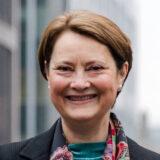 is a Norwegian former diplomat and the current President of the European Free Trade Association Surveillance Authority. She was, among other high-ranking posts, Norway’s Ambassador to Austria and Head of the Norwegian Mission to the United Nations in Vienna. From 2011 to 2014, she served as the first female Secretary General of the Norwegian Ministry of Foreign Affairs.
is a Norwegian former diplomat and the current President of the European Free Trade Association Surveillance Authority. She was, among other high-ranking posts, Norway’s Ambassador to Austria and Head of the Norwegian Mission to the United Nations in Vienna. From 2011 to 2014, she served as the first female Secretary General of the Norwegian Ministry of Foreign Affairs.
Moderator:
Heather Wokush, Deputy Director, International Forum for Understanding
Speakers:
Kendall Alaimo, International Activist, Clinical Educator, Professionally Trained Artist, and Member of the International Survivors of Trafficking Advisory Council (ISTAC)
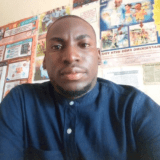 Moses Kinobi, SOLVER 2021, Youth Activist at Uganda Youth Development Link SOLVER 2021 from Haiti. He’s 29 years, and he is a social worker with Uganda Youth Development Link. Moses has got 6 years of working experience with vulnerable children and youth affected by child trafficking, child sexual exploitation, and child labor, out of school slum youth affected by alcohol and drug abuse problems. He has demonstrated experience in supporting children and youth for peaceful coexistence among them in the communities. My motivation to participate in the conference is to share experiences and good practices on how we support vulnerable children and youth for their positive development. Moses trained in conflict management and strategies for interventions organized by ISCAN 2020. This gave him an understanding of conflict analysis and how to provide the best solution for conflict resolution. Kinobi Moses, Social Worker Uganda Youth Development Link B.A Social Work and Social Administration, M.A Social Sector Planning and Management.
Moses Kinobi, SOLVER 2021, Youth Activist at Uganda Youth Development Link SOLVER 2021 from Haiti. He’s 29 years, and he is a social worker with Uganda Youth Development Link. Moses has got 6 years of working experience with vulnerable children and youth affected by child trafficking, child sexual exploitation, and child labor, out of school slum youth affected by alcohol and drug abuse problems. He has demonstrated experience in supporting children and youth for peaceful coexistence among them in the communities. My motivation to participate in the conference is to share experiences and good practices on how we support vulnerable children and youth for their positive development. Moses trained in conflict management and strategies for interventions organized by ISCAN 2020. This gave him an understanding of conflict analysis and how to provide the best solution for conflict resolution. Kinobi Moses, Social Worker Uganda Youth Development Link B.A Social Work and Social Administration, M.A Social Sector Planning and Management.
 Namaja Annet is a Ugandan female aged 27 years. She has 5 years of experience working with vulnerable and disadvantaged youths and young women in Kampala who are victims and at risk of sexual exploitation, child trafficking, and other worst forms of child labor. Annet has experience in social research, social skills, community mobilization, advocacy, and administration with additional knowledge such as good communication, putting into consideration the social worker principles of confidentiality, non-judgmental attitude, controlled emotional involvement, and acceptance among others. She works well in a team, have a creative mind, and is always up for new challenges. Through the engagements she has had with the ISCAN international team, she has got a broader understanding of conflicts and skills in managing and implementing conflict resolution techniques. She attained a Bachelor’s degree in social work and social administration from Makerere University and currently works with Uganda Youth Development Link (UYDEL) as a project officer.
Namaja Annet is a Ugandan female aged 27 years. She has 5 years of experience working with vulnerable and disadvantaged youths and young women in Kampala who are victims and at risk of sexual exploitation, child trafficking, and other worst forms of child labor. Annet has experience in social research, social skills, community mobilization, advocacy, and administration with additional knowledge such as good communication, putting into consideration the social worker principles of confidentiality, non-judgmental attitude, controlled emotional involvement, and acceptance among others. She works well in a team, have a creative mind, and is always up for new challenges. Through the engagements she has had with the ISCAN international team, she has got a broader understanding of conflicts and skills in managing and implementing conflict resolution techniques. She attained a Bachelor’s degree in social work and social administration from Makerere University and currently works with Uganda Youth Development Link (UYDEL) as a project officer.
Madelisse Winoldon, 20 years old, from Cité Soleil, Port-au-Prince Metropolitan Area in Haiti. He is in his final year of high school.
Myolène Extra, 20 years old, from Carrefour-Feuille, Port-au-Prince Metropolitan Area in Haiti. She is in her final year of high school.
Laetitia Degraff, The Haitian youth will be introduced by Laetitia Degraff, a Social Worker with Rapha International in Haiti. She will briefly present the challenges they face before they make their own case in the recorded videos.
Workshop 1: Fostering a culture of peaceful coexistence
Facilitators:
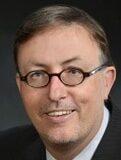 Johannes Maerk Ph.D. University of Innsbruck Austria (Political Philosophy) works as academic coordinator of the MA Program Diplomacy and International Relations at the University of Applied Sciences FH Campus Wien and is a professorial lecturer at the Diplomatic Academy Vienna. His research interests are non-western and comparative social sciences (political thought, IR), epistemology, South-South relations, and applied political science. He currently works on research projects in Latin America and the Middle East.
Johannes Maerk Ph.D. University of Innsbruck Austria (Political Philosophy) works as academic coordinator of the MA Program Diplomacy and International Relations at the University of Applied Sciences FH Campus Wien and is a professorial lecturer at the Diplomatic Academy Vienna. His research interests are non-western and comparative social sciences (political thought, IR), epistemology, South-South relations, and applied political science. He currently works on research projects in Latin America and the Middle East.
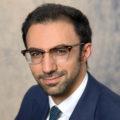 Hessam Habibi Doroh is a researcher of contemporary Iran. He is specialized in minorities in Iran and focuses on themes such as Political Islam and socio-political movements in Iran. Since 2018, he has worked on sectarian conflicts and the question of ethnicity in Iran as a guest researcher at different institutions. He also worked at the International Organisation for Migration, where he conducted research, among other tasks, on the process of peacebuilding in Afghanistan by cooperating with Afghan Civil Societies. Currently, he is the course coordinator and a lecturer of the MA Program Diplomacy and International Relations at the University of Applied Sciences FH Campus Wien at the Department of Applied Political Science.
Hessam Habibi Doroh is a researcher of contemporary Iran. He is specialized in minorities in Iran and focuses on themes such as Political Islam and socio-political movements in Iran. Since 2018, he has worked on sectarian conflicts and the question of ethnicity in Iran as a guest researcher at different institutions. He also worked at the International Organisation for Migration, where he conducted research, among other tasks, on the process of peacebuilding in Afghanistan by cooperating with Afghan Civil Societies. Currently, he is the course coordinator and a lecturer of the MA Program Diplomacy and International Relations at the University of Applied Sciences FH Campus Wien at the Department of Applied Political Science.
Presentation
 Josipa Palac, President and Chief Executive Officer of ICDO. She pursued a BA in International Relations and Media Communications, which led her to work at the UN and gain first-hand experience in organizing conferences and panel discussions, monitoring global media and media outreach, and performing research. After this experience, she pursued a MA in Cultural Differences and Transnational Processes at the Department of Social and Cultural Anthropology. She specifically focused on transnational migration. During her MA, Josipa conducted anthropological research in Cairo, Egypt, where she contextualized political and social changes in Egypt in relation to gender roles. Following her MA, she worked for the Embassy and Permanent Mission of Sri Lanka in Austria.
Josipa Palac, President and Chief Executive Officer of ICDO. She pursued a BA in International Relations and Media Communications, which led her to work at the UN and gain first-hand experience in organizing conferences and panel discussions, monitoring global media and media outreach, and performing research. After this experience, she pursued a MA in Cultural Differences and Transnational Processes at the Department of Social and Cultural Anthropology. She specifically focused on transnational migration. During her MA, Josipa conducted anthropological research in Cairo, Egypt, where she contextualized political and social changes in Egypt in relation to gender roles. Following her MA, she worked for the Embassy and Permanent Mission of Sri Lanka in Austria.
Workshop 2: Improving conflict management and humanitarian assistance through engagement
Facilitators:
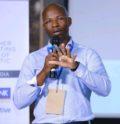 Billy Batware is a Programme Officer at UNODC, responsible for the Civil Society Unit’s work on transnational organized crime. Billy is the founder of the International Security and Conflict Analysis Network and Initiator of its flagship SOLVE Initiative. Billy is also the founder of United for Education and Sustainable Futures, whose flagship project is Youth Education Ambassadors and the Regional Academy of the United Nations. He is also a visiting lecturer of international conflicts and development, and a certified trainer in international security, and a Leadership Coach.
Billy Batware is a Programme Officer at UNODC, responsible for the Civil Society Unit’s work on transnational organized crime. Billy is the founder of the International Security and Conflict Analysis Network and Initiator of its flagship SOLVE Initiative. Billy is also the founder of United for Education and Sustainable Futures, whose flagship project is Youth Education Ambassadors and the Regional Academy of the United Nations. He is also a visiting lecturer of international conflicts and development, and a certified trainer in international security, and a Leadership Coach.
Workshop 3: Designing Ethical Tech Solutions for Human Trafficking
Facilitators:
 Marianna Kosharovsky is the Founder and Executive Director of ALIGHT. Her expertise is rooted in over 10 years of experience in human trafficking, law, and professional collaboration in the U.S. and abroad. As an attorney, Marianna represented survivors of sex and labor exploitation at the domestic violence agency Sanctuary for Families, as well as global corporate clients at the international law firm Milbank in New York. In Eastern Europe/Russia, she worked on human trafficking and human rights development with PILnet: Global Network for Public Interest Law.
Marianna Kosharovsky is the Founder and Executive Director of ALIGHT. Her expertise is rooted in over 10 years of experience in human trafficking, law, and professional collaboration in the U.S. and abroad. As an attorney, Marianna represented survivors of sex and labor exploitation at the domestic violence agency Sanctuary for Families, as well as global corporate clients at the international law firm Milbank in New York. In Eastern Europe/Russia, she worked on human trafficking and human rights development with PILnet: Global Network for Public Interest Law.
Workshop 4: Enhancing conflict resolution through diplomacy and mediation
Facilitators:
 Agnieszka Fal-Dutra Santos is the Director of Programs at the Global Network of Women Peacebuilders. She has provided technical support to the development of National Action Plans and facilitated the Localization of UNSCR 1325 in 15 countries. Agnieszka has managed peacebuilding programs and provided support to WPS implementation across Eastern Europe and the South Caucasus, Latin America, Africa and the Middle East, and North Africa. Prior to joining GNWP, Agnieszka worked on issues related to women, peace and security, and conflict-related sexual violence with the International Committee of the Red Cross, Mercy Corps, and UN Women.
Agnieszka Fal-Dutra Santos is the Director of Programs at the Global Network of Women Peacebuilders. She has provided technical support to the development of National Action Plans and facilitated the Localization of UNSCR 1325 in 15 countries. Agnieszka has managed peacebuilding programs and provided support to WPS implementation across Eastern Europe and the South Caucasus, Latin America, Africa and the Middle East, and North Africa. Prior to joining GNWP, Agnieszka worked on issues related to women, peace and security, and conflict-related sexual violence with the International Committee of the Red Cross, Mercy Corps, and UN Women.
Workshop 5: Revising Peacekeeping and peacebuilding interventions
Facilitators:
 Robert Stessl, born in 1975, is since 2007 Senior NCO Civil-Military Co-operation (CIMIC) in the Austrian Armed Forces International Centre in Graz/Austria. He works also as Trainer/Instructor at international courses related to Civil-Military Interaction and Humanitarian Civil-Military Co-ordination (UN-CMCoord). His mission experience is connected to the UN and NATO deployments with the Austrian Armed Forces in the Balkans and Mali.
Robert Stessl, born in 1975, is since 2007 Senior NCO Civil-Military Co-operation (CIMIC) in the Austrian Armed Forces International Centre in Graz/Austria. He works also as Trainer/Instructor at international courses related to Civil-Military Interaction and Humanitarian Civil-Military Co-ordination (UN-CMCoord). His mission experience is connected to the UN and NATO deployments with the Austrian Armed Forces in the Balkans and Mali.
Workshop 6: Action against terrorism
Facilitators:
 Francisco Aras – Professor and Researcher, Catholic University of Argentina Francisco works as a professor and researcher at the Catholic University of Argentina (UCA). His research focus is on counter-terrorism and ICT. He completed a Master of Laws degree at Columbia University, New York. Francisco has worked in the National Government of Argentina, at the Permanent Mission of Argentina to the United Nations, and at the United Nations Counter-Terrorism Committee Executive Directorate (UN-CTED).
Francisco Aras – Professor and Researcher, Catholic University of Argentina Francisco works as a professor and researcher at the Catholic University of Argentina (UCA). His research focus is on counter-terrorism and ICT. He completed a Master of Laws degree at Columbia University, New York. Francisco has worked in the National Government of Argentina, at the Permanent Mission of Argentina to the United Nations, and at the United Nations Counter-Terrorism Committee Executive Directorate (UN-CTED).
Workshop 7: Protection of vulnerable groups in conflict settings
Facilitators:
 Diana Joseph – Managing Trustee of FWF, Diana started her career in the Development Sector with Action Aid and has over 10 years of experience working with international organisations like UNESCO. She has been actively championing the cause of Inclusion with special focus on Children with Special Needs, Issues of Right to Education, and Child Rights. A researcher by interest and passion, she has also co-authored several papers and journals which have been presented at international forums.
Diana Joseph – Managing Trustee of FWF, Diana started her career in the Development Sector with Action Aid and has over 10 years of experience working with international organisations like UNESCO. She has been actively championing the cause of Inclusion with special focus on Children with Special Needs, Issues of Right to Education, and Child Rights. A researcher by interest and passion, she has also co-authored several papers and journals which have been presented at international forums.
 Kasirye Rogers – BA Social work, MA and PhD candidate. – As an experienced NGO leader and expert consultant on youth in sub-Saharan Africa, Mr. Kasirye has worked extensively to research, implement programs, and inform policy on pervasive health risks that face the youth population. Based on Mr. Kasirye’s research on HIV/AIDS, alcohol, and street youth in Uganda and East Africa. He has served in a technical consultant capacity to inform research for the WHO and various UN bodies. Mr. Kasirye believes in early prevention as a person who has worked in law resource country. He believes in sharing experience and building capacity of others.
Kasirye Rogers – BA Social work, MA and PhD candidate. – As an experienced NGO leader and expert consultant on youth in sub-Saharan Africa, Mr. Kasirye has worked extensively to research, implement programs, and inform policy on pervasive health risks that face the youth population. Based on Mr. Kasirye’s research on HIV/AIDS, alcohol, and street youth in Uganda and East Africa. He has served in a technical consultant capacity to inform research for the WHO and various UN bodies. Mr. Kasirye believes in early prevention as a person who has worked in law resource country. He believes in sharing experience and building capacity of others.
Workshop 8: Accelerating climate action for the promotion of peace and prevention of conflict
Facilitators:
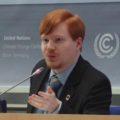 Timothy Damon is the Founder and President of the Global Youth Development Institute. With 10 years of experience from many aspects of the UNFCCC process, and particular expertise regarding Action for Climate Empowerment (ACE), his academic background included elements of Security Studies, with ongoing attention to the evolving nexus of climate and security. He is also currently an Acting Focal Point of ECOS and formerly was a Focal Point of YOUNGO.
Timothy Damon is the Founder and President of the Global Youth Development Institute. With 10 years of experience from many aspects of the UNFCCC process, and particular expertise regarding Action for Climate Empowerment (ACE), his academic background included elements of Security Studies, with ongoing attention to the evolving nexus of climate and security. He is also currently an Acting Focal Point of ECOS and formerly was a Focal Point of YOUNGO.
Closing Ceremony
Moderator:
 Elena Gabriela Ardelean, CEO and Founder, Artificial Intelligence 4 Development Agency (AI4DA), a tech nonprofit established in Europe with a local presence in Africa and the Middle East. She believes AI represents a global challenge and an excellent opportunity for which she engages widely to prepare young people for the future of work and tackle disinformation. In her spare time, she loves training young people on Agile Leadership in Post-Conflict Environments.
Elena Gabriela Ardelean, CEO and Founder, Artificial Intelligence 4 Development Agency (AI4DA), a tech nonprofit established in Europe with a local presence in Africa and the Middle East. She believes AI represents a global challenge and an excellent opportunity for which she engages widely to prepare young people for the future of work and tackle disinformation. In her spare time, she loves training young people on Agile Leadership in Post-Conflict Environments.
Speakers:
 Katrin Harvey, Chief Operating Officer, Ban Ki-moon Centre for Global Citizens. She has over a decade of experience in sustainability, climate change, clean energy, and organizational management. Katrin has managed projects in Africa and Asia in partnership with UN agencies, the EU, and various development agencies. Her work focuses on capacity building, market development, and public-private dialogue, as well as sustainability in agri-food value chains. Katrin is also experienced in managing international knowledge exchange amongst experts in energy efficiency, energy regulation, and international law.
Katrin Harvey, Chief Operating Officer, Ban Ki-moon Centre for Global Citizens. She has over a decade of experience in sustainability, climate change, clean energy, and organizational management. Katrin has managed projects in Africa and Asia in partnership with UN agencies, the EU, and various development agencies. Her work focuses on capacity building, market development, and public-private dialogue, as well as sustainability in agri-food value chains. Katrin is also experienced in managing international knowledge exchange amongst experts in energy efficiency, energy regulation, and international law.
Stephanie Garman Freed, CEO, and Founder, Rapha International, TBC
Closing remarks:
Billy Batware, Founder of iSCAN, Initiator of SOLVE Initiative
Celebrating youth empowerment for the promotion of peace and the prevention of conflicts during the SOLVE2021 Conference 27 September 2021 – The SOLVE 2021 Conference, entitled “Empowering Youth for the Promotion of Peace and Prevention of Conflicts” took place on 20-21 September 2021 online with the aim to celebrate incredible work done by organizations and individuals in the area of peacebuilding. The Conference which brought together participants from all over the world included eight workshops addressing various topics related to peace and security with a focus on the involvement of young people.
The Conference resulted in an outcome document – the SOLVE 2021 Declaration – and honored six individuals with SOLVE awards – two SOLVE Enabler awards for individuals who are doing incredible work supporting youth, and four SOLVER awards for high-impact youths from Uganda and Haiti.
In her keynote message, Ambassador Bente Angell-Hansen, President of the European Free Trade Association Surveillance Authority (ESA) and Former Ambassador of Norway said that “we know that arm conflicts, terrorism and most of today’s global and regional challenges are man-made. We know that solutions to these challenges can only be found by women and men. And we know that the future belongs to the young generation.”
The SOLVE 2021 Declaration includes the participants’ recommendations and commitments on the role of youth with regards to conflict management, conflict resolution, peacekeeping, and peacebuilding; the special vulnerability of youth in conflict and post-conflict settings; and the role of youth regarding the creation of a culture of peaceful coexistence, climate change action, and action against terrorism.
The main message from the Declaration’s clauses is that youth can and do constitute drivers of change and can and do serve as agents of peace. Having this in mind, the Declaration expresses the need for youth empowerment in ensuring that they are part of efforts for conflict resolution and building sustainable peace.
Overall, the essence of the SOLVE 2021 Declaration boils down to the following words: youth empowerment, meaningful inclusion, platform for dialogue, and opportunity for change. The Declaration’s recommendations all build on these concepts, while the two commitments, referring to the iSCAN-supported online community and the yearly forum, indicate a possible step towards a future where youth have a seat at the table where their own future, among others, in terms of international peace and security and sustainable development is debated. Moving forward, the SOLVE 2021 Declaration will be translated in different languages to ensure wider access. It will be made available on the iSCAN’s website and will be open for endorsement from any individual and organizations who wish to support the actions contained in it. iSCAN will follow closely how organizations and individuals are implementing the Declaration and will review the progress made during SOLVE2022 Conference which will take place in September 2022.
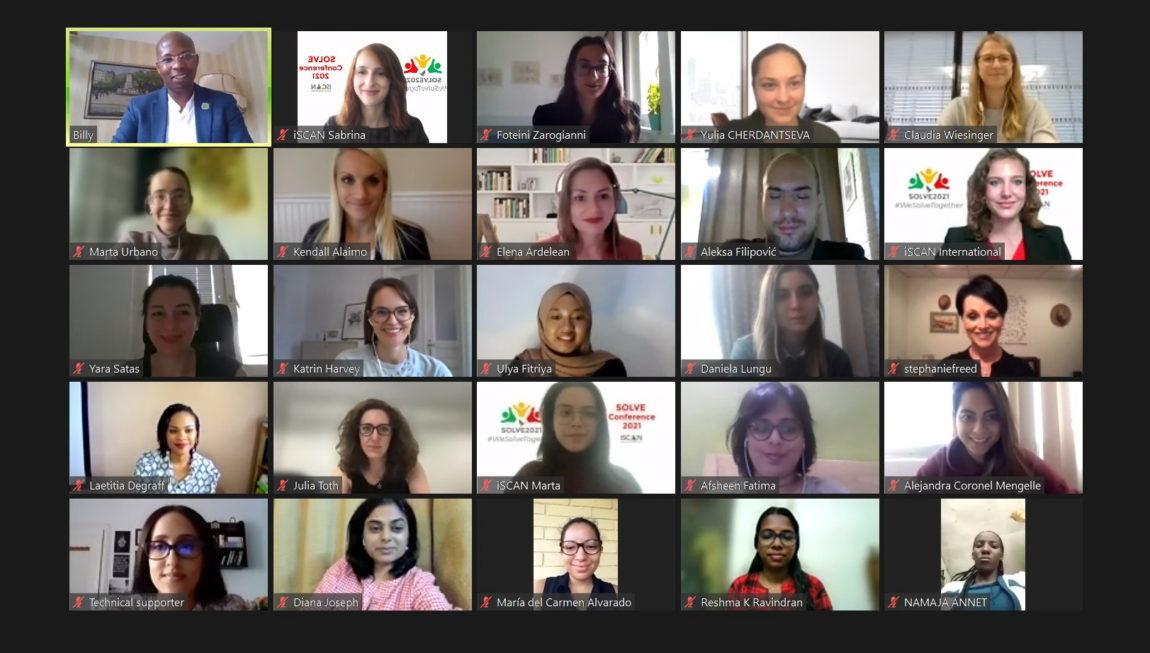
Summary
The SOLVE 2021 Conference, entitled “Empowering Youth for the Promotion of Peace and Prevention of Conflicts”, resulted in an outcome document, the SOLVE 2021 Declaration.
The Declaration includes the participants’ recommendations and commitments concerning all the topics discussed during the conference’s thematical workshops, namely the role of youth with regards to conflict management, conflict resolution, peacekeeping, and peacebuilding, the special vulnerability of youth in conflict and post-conflict settings, the role of youth regarding the creation of a culture of peaceful coexistence, climate change action, and action against terrorism.
The general notion that runs through all the Declaration’s clauses is that youth can and do constitute drivers of change and can and do serve as agents of peace. Having this in mind, the Declaration expresses the need for youth empowerment in terms of ensuring their voices are being heard with regards to conflict resolution and building sustainable peace, and in terms of ensuring their meaningful, that is, able to influence outcomes, participation in conflict resolution processes, peacekeeping and peacebuilding operations. In order to do so and to foster a culture of peaceful coexistence, the Declaration stresses the importance of intergenerational dialogue, in both informal and formal settings, so as for decision-makers to come face to face with youth voices, concerns, and requests and vice-versa.
As far as informal settings are concerned, the Declaration includes the recommendation for iSCAN to create an online community connecting youth, decision- and policy-makers, activists, and experts in order to raise awareness about youth role in respect of international peace and security, about the opportunities for action, for meaningful participation, and for actual change. To further facilitate this goal, the Declaration also proposes the hosting by iSCAN of a yearly forum connecting these people and allowing for a real-time exchange of ideas and decision on actions in the fields of peace, security, and sustainable development. Furthermore, the Declaration reiterates the essential character of awareness-raising with respect to the root causes of conflict and the special vulnerabilities that youth, children, and women face in conflict and post-conflict settings, especially regarding trafficking in persons, extremism, and terrorism. This is why the Declaration calls upon civil society, youth, and student organisations to combine forces with national and international bodies and develop such awareness-raising programmes aimed at fostering this “passion for change”.
Last but not least, the Declaration acknowledges the double-faced role of technology, namely its potential harmful use, as for example by terrorists or traffickers, and its positive use, as for example for advocacy purposes, youth empowerment, or, more technically, for combatting terrorism, trafficking, or human rights violations. This is why the Declaration embraces a pro-technology approach to all these issues, calling upon the international community to detect and make use of all the ways it can help in ensuring peace and security online and offline and in granting youth with a platform to express themselves.
Overall, the essence of the SOLVE 2021 Declaration boils down to the following words: youth empowerment, meaningful inclusion, platform for dialogue, opportunity for change. The Declaration’s recommendations all build on these concepts, while the two commitments, referring to the iSCAN-supported online community and the yearly forum, indicate a possible step towards a future where youth have a seat at the table where their own future, among others, in terms of international peace and security and sustainable development is being debated.
